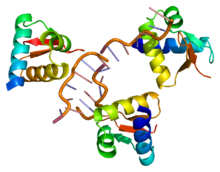Introduction:
Lyases, a diverse class of enzymes, play a crucial role in shaping the molecular landscapes of living organisms. By catalyzing the addition or removal of functional groups, lyases drive essential biochemical reactions, contributing to various biological processes. In this blog post, we will delve into the significance of lyases and explore key points about their functionality and roles in different metabolic pathways.
Understanding Lyases:
Lyases are enzymes that facilitate the breaking or formation of chemical bonds within molecules, without the need for water as a co-reactant. They play a vital role in key metabolic pathways responsible for energy production, molecule synthesis, and metabolic regulation.
Key Points:
Metabolic Pathways:
Lyases are integral components of several metabolic pathways. For instance, in glycolysis, lyases such as aldolases catalyze the cleavage of fructose-1,6-bisphosphate into two three-carbon molecules, aiding in the production of energy. Similarly, in the citric acid cycle, fumarase catalyzes the conversion of fumarate to malate, an important step in energy generation.
Carbon-Carbon Bond Formation:
One of the fundamental functions of lyases is the formation of carbon-carbon bonds. These enzymes can catalyze the synthesis of new molecules by joining two or more carbon atoms, facilitating the production of essential compounds in cellular processes such as biosynthesis.
Carbon-Carbon Bond Cleavage:
Lyases also play a role in carbon-carbon bond cleavage, breaking down molecules and contributing to the degradation of various compounds. For example, the enzyme threonine aldolase catalyzes the cleavage of threonine, an amino acid, into glycine and acetaldehyde.
Regulation of Metabolic Flux:
Lyases contribute to the regulation of metabolic flux, ensuring that key metabolic pathways are balanced and operate efficiently. By modulating the activity of specific enzymes, lyases play a crucial role in controlling metabolic reactions and redirecting pathways based on the cell’s needs and environmental conditions.
Biotechnological Applications:
The versatility and specificity of lyases have made them valuable tools in biotechnology. Their ability to form or break specific bonds has been harnessed for various applications, including the production of fine chemicals, pharmaceutical intermediates, and the synthesis of compounds with potential industrial and therapeutic importance.
Conclusion:
Lyases are an essential class of enzymes that shape the molecular landscapes in living organisms. Their profound influence on metabolic pathways, carbon-carbon bond formation and cleavage, and regulation of metabolic flux highlights the significance of lyases in various biological processes. Furthermore, their biotechnological applications demonstrate their potential for innovation and development in different industries. Further research into lyases and their mechanisms will undoubtedly uncover new insights and potential applications, leading to advancements in both basic scientific knowledge and practical applications.
#lyases

